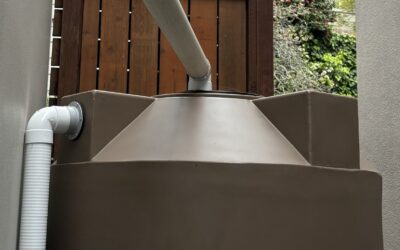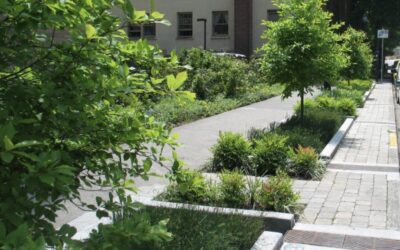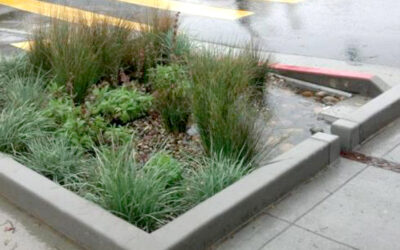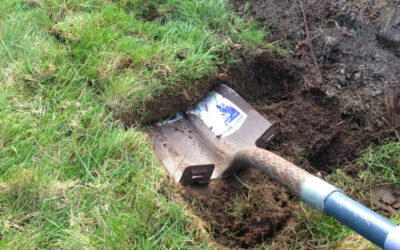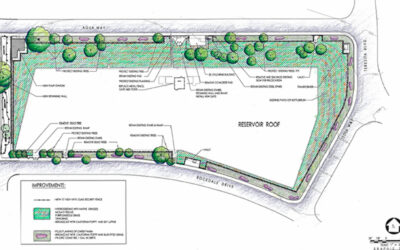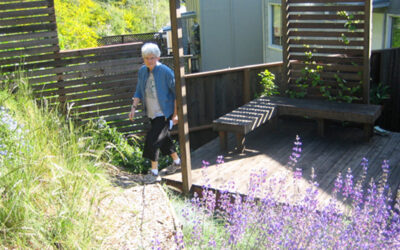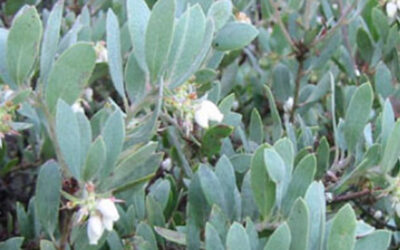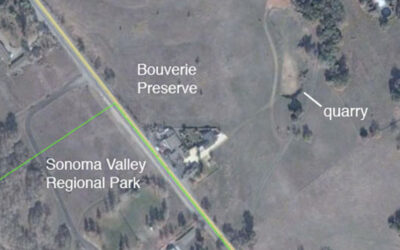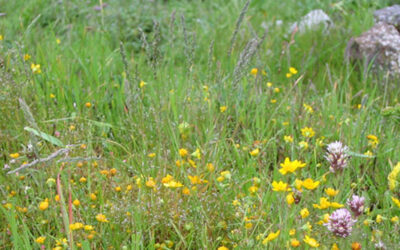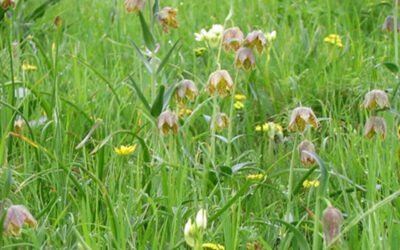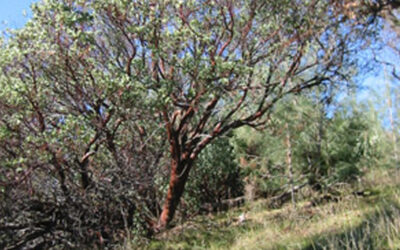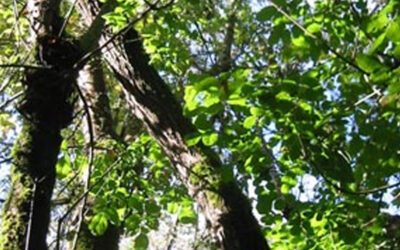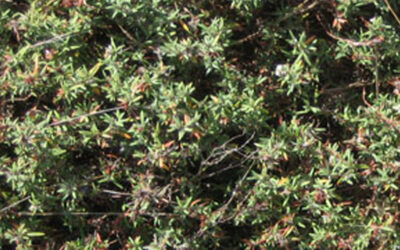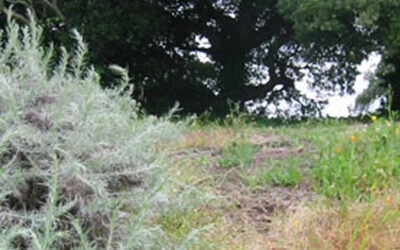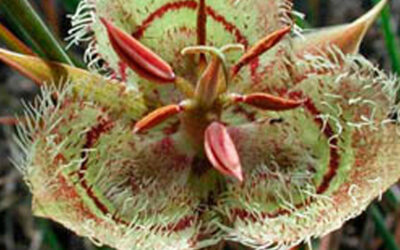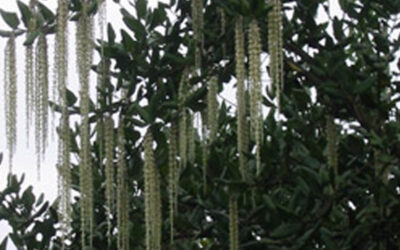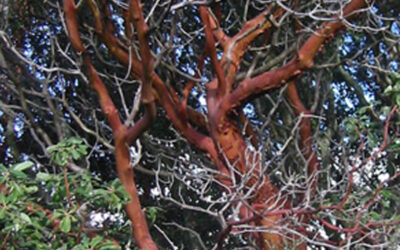Media
Native plants and modern materials always figure highly in our thoughts.
This section explores the zeitgeist of contemporary landscape design, sweeping aside cliché to consider new models of the built environment. Our most prolific contributor, Geoffrey Coffey, cut his teeth writing the “Locals Only” column on native plants for the San Francisco Chronicle.
First Pilot Project Completed for S.F. Green Infrastructure Grant
We completed the first pilot project approved under a grant program by the SFPUC to fund green infrastructure for residential homeowners.
California Statewide Irrigation Ban on Non-Functional Turf
The state essentially has outlawed decorative lawns from government, public agency, commercial, industrial, HOA and other properties, phased between 2027-2029
Madroño Certified as Green Infrastructure Contractor
Certified by the SFPUC to build rain gardens, infiltration basins, stormwater tanks, permeable hardscapes, and other green infrastructure.
Kill Your Lawn, Get Paid
A $2000 rebate for the replacement of lawns at single-family residences has been announced by the CA Dept. of Water Resources
“Best Overall Design” at S.F. Garden Show
“Pacific Rim Fusion,” an exhibit of California native landscaping with Japanese inflection, wins best overall design for Small Spaces Living.
California Passes Rainwater Catchment Act
Rainwater capture and reuse does not require a water rights permit from the California Water Resources Control Board.
Native Carex and Iris in Miraloma Park
Locally appropriate native plants at the Stanford Heights Reservoir in San Francisco — a triumph of design simplicity and ecological wisdom.
A Word on Modern Fences
Good fences don’t make good neighbors, but they can deliver a sense of harmony to the politics of the property line.
Deck as Bridge across Concrete Swale
Landscape design can bridge otherwise impassable hurdles. Consider this deck, designed to allow passage over a drainage trench.
Earth Stewards get a look beyond the street
The downtrodden and the threatened come together weekly on the grounds of the San Francisco County Jail for an exercise of remarkable symbiosis.
To Learn about Native Plants, Just Dig Right In
A new book on California native plants has hit the shelves, opening the door for interested gardeners wishing to learn more about our local flora. Trend- spotters agree that interest in native plants is growing. Classes in native plant horticulture are drawing...
View from Dinosaur Peak Reveals Old Treasures
My comrade Pete Veilleux, native plant landscaper and bushwhacking enthusiast nonpareil, asked if I would like to join him on a hike to see a secret corner of Oakland. Not far from his house in the teeming East Bay 'hood where oaks no longer grow, steep mountains...
Bonny Doon: Exploring the Silver Strand
Few explorers would expect to find a beach hidden in the middle of a redwood grove. Yet such incongruities lurk in the mountains above Santa Cruz, where ancient seabeds upthrust millions of years ago by tectonic turmoil gave rise to stark hills of sand now tucked...
Hunting for Treasure on Yerba Buena Island
Distant rumblings from city hall portend a boom on Treasure Island, the former Navy base on the brink of becoming San Francisco's newest residential neighborhood. This exercise of urban planning in the middle of the bay will be a closely watched experiment. Early...
A Tale of Two Pools in the Valley of the Moon
Water paints with shifting colors the divided contours of the Valley of the Moon in Sonoma, California. The blues and greens of oak and bay forests on protected north-facing slopes complement the fire and earth tones of chaparral on the south-facing sides. Here at the...
Brisbane Acres and the Blood of the Lamb
Passover comes this Sunday, a rite from the Biblical story of Exodus, wherein the enslaved Israelites win their freedom from Pharaoh. It seems a fitting context for a discussion of The Acres, an indentured ecosystem on the wildland-urban interface. These substantial...
Bernal Hill’s Big Bloom is Best in Decades
Often charming, occasionally gritty, surely up-and-coming -- witness the real estate renaissance of Bernal Heights, S.F.'s neo-boho neighborhood where once-dilapidated homes now zoom at the speed of commerce beyond the million dollar threshold. Yet a liferaft floating...
Living Large in Muir Woods
The trappings of prosperity pursued by contemporary city dwellers emphasize the appeal of "living large," hinting that the ends of financial aggrandizement will justify any means. But here in the Bay Area, we also enjoy a wealth of nearby natural resources that remind...
Cedar Mountain Ridge: Journey to the World’s Tallest Manzanita
"I just hiked to the top of Cedar Mountain Ridge," wrote Pete Veilleux, proprietor of East Bay Wilds landscaping, "and found some very cool plants including a bigberry manzanita 40 feet tall!" Incredulity rippled through the native plant coven. The standing record for...
A Study of Ancient History on Strawberry Hill
The well-groomed greenery of San Francisco's Golden Gate Park demonstrates the power of mankind to transform an uncultivated landscape into a recreational playground. Once a windswept wildland, these former sand dunes and occasional oak groves were staked out in the...
Connections Run Deep in Lagunitas Creek
November rain sings a song of connectivity. It completes the natural cycle, raising the rivers and recharging the aquifers, pouring from the air to the earth and back to the ocean whence it came. We find an extraordinary example of its ramifications in western Marin...
Born from the Salt: Lifecycles of Bair Island
At the confluence of Redwood Creek and San Francisco Bay in southern San Mateo county, three islands shape-shift in drifting piles of river silt and sea salt. Boundaries may blur, but Smith and Corkscrew Sloughs divide this trio clearly into Inner, Middle, and Outer...
Step Back in Time to Leona Canyon
On a mountain range in Oakland, a lioness prowls her historic canyon. Rugged ridges and riotous riparian zones cleave the oak woodlands and chaparral into complementary halves. This is the intersection of sunlight and shadow, of wilderness and the urban, of knowledge...
A Call for Mercy at Lake Merced
Water and sand straddle the symbolic spectrum of living: while the former is biologically essential, the latter evokes the lifeless dunes of the desert. Yet here in San Francisco, where dunes define our geology and "normal" is anything but, the sandy banks of our...
Going in for Natural Solitude on Mt. Wanda
Words bestow immortality: just as the book outlives its author, a name can outlast its human corollary. Many California landmarks bear the names of historic families, for example, providing a subtext that enhances our sense of local identity. The story behind each...
Taking the Waters at El Polin
Predicting the future or understanding the past -- which is more important? Ask the Muwekma Ohlone, who settled the village of Petlenuc beside El Polin some 5,000 years ago; they knew lots about the local plants and animals, but had no idea this land would become the...
Mariposa Lilies and Monoliths on Ring Mountain
Daily we drive our cars or ride the bus to the city, glad for modern transportation yet melancholy for the fate of paved-over Nature, a presumed paradise lost. But pockets of the original wilderness still flourish among our Bay Area motorways, just as a rare flower...
Role-Reversal on Coyote Ridge: Cattle rescue endangered butterfly
Shifting identities and strange alliances occur along the wildland-urban interface, where natural ecosystems collide with cities and the side effects of human industry. Plants and animals living along these intersections must adapt to changing conditions, or perish....
Nursing Biodiversity on Twin Peaks
Once upon a time, Twin Peaks stood as one mountain, a united man and wife. But the couple quarreled long and bitterly, until at last the Great Spirit cleaved them with a bolt of lightning. The neighborhood has been quiet ever since -- or so say the chroniclers of...
Mountain of Youth: Natural Longevity on Montara Mountain
Here in earthquake country, the land moves in puzzling ways. Take Montara Mountain, a San Mateo landmark at the uppermost edge of the Santa Cruz Range, whose steep heights plunge dramatically through the fog down into the sea at Devil's Slide. It looks like the...
The Fire and the Bloom Are One: Natural Succession at Huckleberry Preserve
Leave your car in the parking lot on Skyline Blvd. in the Oakland Hills and step through the unknown, remembered gate onto the huckleberry path. Inhale the aroma of rain on the wind, a perfume mixed with the bouquet of a mature bay forest. Sheer rocky knolls punctuate...
Hark, the Woodland Angel Sings!
A heavenly light shines this evening 800 feet above San Francisco Bay. Closer inspection reveals six strings of bright white bulbs hung from a 30-foot pole atop the peak of Angel Island, a tree-shaped beacon lit for the holidays. The architects of this symbolic arbor...
Speak, History: A Congress of Voices on San Bruno Mountain
Standing solemnly in the middle of the hectic San Francisco peninsula, San Bruno Mountain nurses a pocket of pre-Colombian life largely unchanged by modern times, a rural island in an urban sea. Harvard biologist Edward O. Wilson ranks this site among the world's...
Sympathy for the Devil: Tricks and Treats on Mt. Diablo
Fire danger is high on Mount Diablo in October -- perhaps because the arch-fiend haunts his namesake peak for the season of All Hallow's Eve, but more likely because the summer months have brought little water, and the parched local plant life must endure the...
Gold and Green and Pearls Everlasting: The Botanical Wealth of Sweeney Ridge
Explorers from Great Britain and Spain reached the coastal waters of northern California in the mid-16th century, but somehow they missed San Francisco Bay: from their ships, the narrow Golden Gate must have looked like unbroken shoreline, or perhaps merely was...
A Wrangling of Species on Mount Davidson
The northeast slope of Mount Davidson supports a wonderful population of native wildflowers, grasses, and shrubs that, when planted at home, can enrich San Francisco gardens with a sense of local identity. This is also a botanical battlefield where mankind only...
#BUILTBYMadrono
Make A Connection
We’d love to strike up a relationship with you and your garden. Let’s get acquainted.

About Us
The strength of creative vision to imagine your ideal garden is only the first step in our partnership. Next, we commit to the concept and build it with the most durable, highest quality materials. Gratified clients engage Madroño for ongoing maintenance, making it a long-term relationship.
Our Services
Landscape Design
Construction & Build
Garden Maintenance
Stonework
Water Features
Landscape Lighting
Fences
Contact Us
Mailing Address:
58 West Portal Ave
San Francisco, CA 94127

